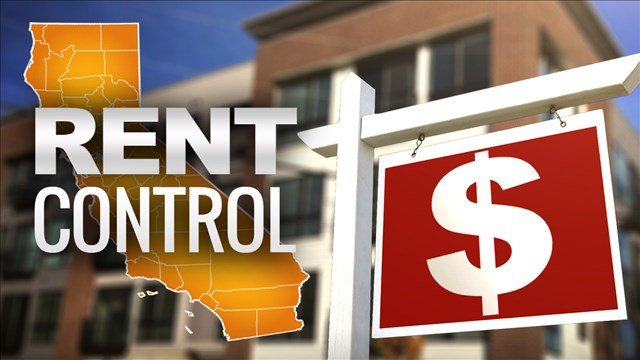The City of Sacramento will implement rent control in limited circumstances in an effort to get supporters to pull a more far reaching rent control ballot measure that was scheduled to go for a vote next March. To implement this new scheme of government intrusion, of course a new tax is required to be paid by property owners who no doubt will raise tenant rents as a result. The stories that I read in the media are silent on whether all rental property owners get to subsidize this program or only the ones covered by rent control—this being California you shouldn’t make assumptions on such matters.
The Sacramento City Council is expected to approve a local rent control measure Tuesday in a compromise between city officials, labor unions and developers. The agreement – which will cap rent increases for older housing – will avoid what likely would have been a bitter, multi-million dollar political campaign next year.
In its new form, the Sacramento Tenant Protection and Relief Act, which the council will consider at its 2 p.m. meeting Tuesday, will create a set of renter protections for tenants who live in housing built prior to Feb. 1, 1995. The ordinance will cap the amount that landlords can increase rent each year; prohibit landlords from evicting tenants without a reason; and create a process where tenants can report landlords who violate the act.Rent control is likely coming to Sacramento. How a new plan will affect renters, landlords
The proposal is a compromise that’s the result of months of talks between city officials and advocates who gathered signatures to put a stricter rent control measure on the local ballot in 2020, said Councilman Steve Hansen, who led the negotiations.
The ordinance covers three areas:
- Cap on rent increases
- Limit reasons for eviction of tenants
- Create reporting system so city can help tenants fight property owners
For some reason, this law will only apply to housing built before 1995…at least for the first five years then the City Council will review the ordinance for further modification.
Rent Cap
The ordinance will prohibit landlords from raising rent more than 6 percent plus the “consumer price index” percentage for the West Region per year.
Landlords will never be able to increase rent more than 10 percent, even if the CPI ever exceeds 4 percent, the ordinance says.
Eviction
The ordinance will also prohibit landlords from evicting tenants, unless tenants stop paying rent, are criminally charged, are illegally selling drugs, fail to give landlords access to the unit, or otherwise violate their leases.
The ordinance will bar landlords from evicting tenants for no reason, and require they give tenants an option to renew their lease, Hansen said
Landlords will still be able to evict tenants if they are making certain repairs or selling the unit, under certain circumstances, but will have to show proof, and will need to give the tenants an extensive 120-day notice.
The act will cover tenants who signed leases that are month-to-month or longer, those who live in apartments, mobile home parks and single room occupancy hotels, Hansen said. The act cannot legally apply to tenants renting single-family homes, though, unless they have been converted in to multiple units, such as duplexes.
New City Bureaucracy
The ordinance will require property owners to pay a fee, likely between $15 and $20 per unit per year, Hansen said. The fees will go toward running the program, enforcement, and tenant/landlord education.
Landlords will be able to apply to impose higher rent increases in front of city hearing officers, but only if they plan to make significant improvements to the units, the release said.
Remarks
As with anything Liberals do, this is a beginning and not a destination. I expect rent control to be expanded further via one of three vectors.
1 When the five years is up, the City Council will move the year 1995 up to 2000 (ahead five years) or more thus including even newer construction.
2 Via the ballot measure which is supposed to be on the Statewide November 2020 ballot.
3 Via direct Legislative action.
In spite of the claims of landlords evicting tenants with ease, this is fantasy. It takes many months and thousands of dollars to get someone to move out of your property unless they voluntarily agree to do so. In such cases, property owners spend thousands of dollars to repair the property so they can rent to someone else. Folks that refuse to move out are typically the ones that ruin floor and wall coverings, strip the place bare of appliances, plumbing fixtures, and vandalize the crap out of places.
Any time rent control is implemented, it is a de facto confiscation of private property. The property owner is then a vassal of the government and in a practical sense, the control of the property is forfeited without just compensation. In short, rent control is theft using the power of the sword. In the old days we called such government acts “tyranny”, but now it’s called “fairness” or some other innocuous name. George Orwell would call this “doublespeak”.
